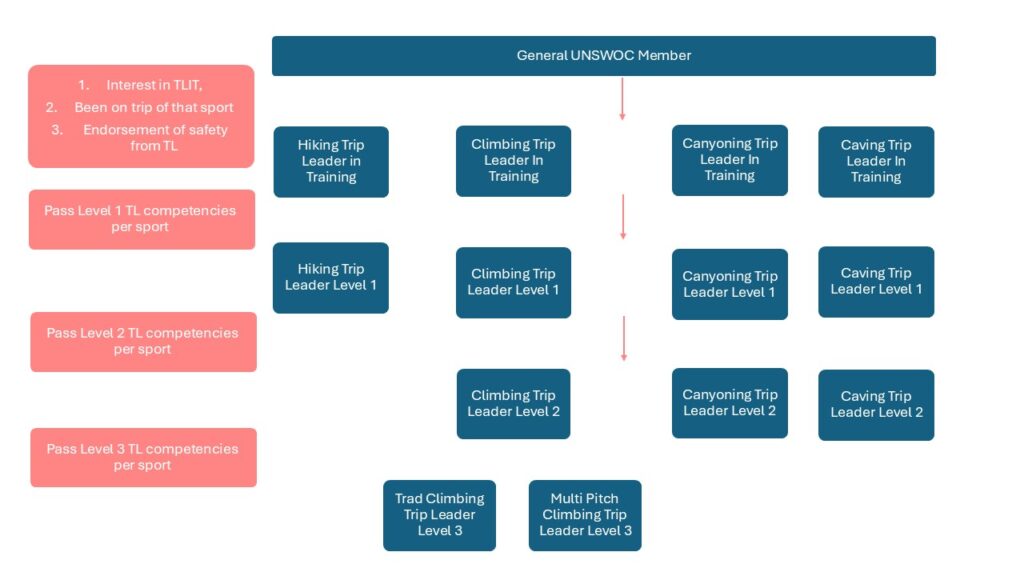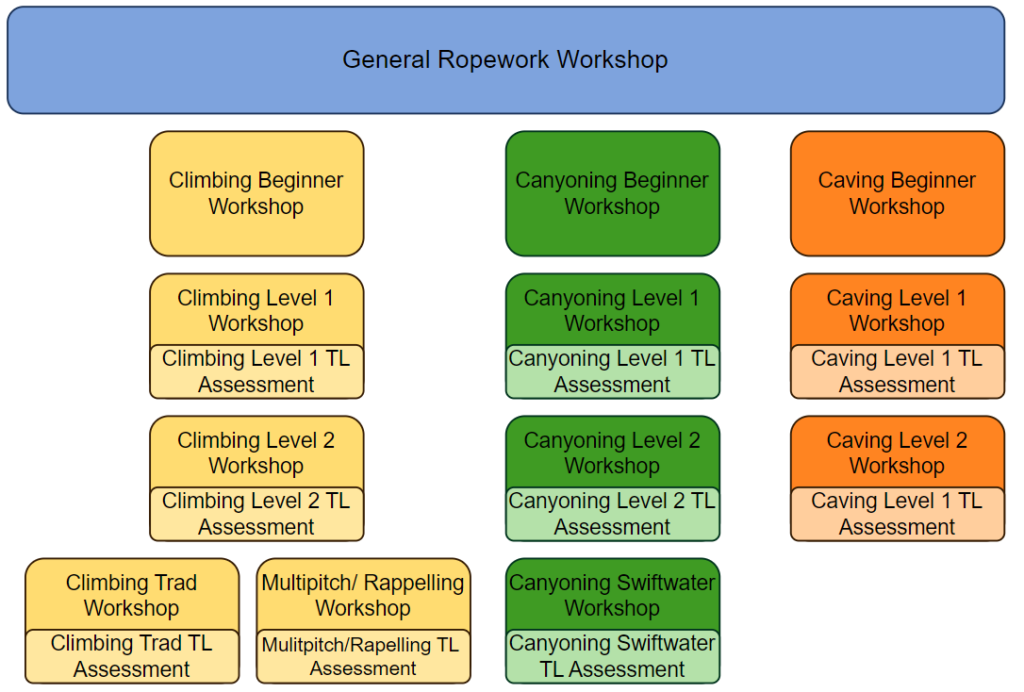This page describes training progression at UNSWOC and the trip leader levels within the club, in addition to the method assessment of skills to determine the appropriate Trip Leader Level for individuals.
Training Progression
Training has been developed into sport and level specific workshops which include ropework, climbing, canyoning and caving. General ropework and beginner workshops are suitable for any club member wishing to improve their outdoors skillsets. Level 1 and above workshops are suitable for (but not exclusive to) more experienced club members to progress into Trip Leaders In Training (TLIT) and eventually Trip Leaders (TL). The content of each workshop can be found in the UNSWOC Training Workshop Outcomes document, and the details of required competencies for each type of trip leader can be found in the UNSWOC Trip Leader Assessment Document. The progression of skills is captured in workshops and Trip Leader Assessments as outlined in the figure below.

Competency Assessment Process
When an individual is confident that they satisfy all the competencies outlined in the UNSWOC Trip Leader Assessment document for a specific sport and level, they should reach out to the Training Officer to coordinate an appropriate TL in that specific sport that can verify those skills. This will typically be a TL at least one level above what the individual is getting approved for e.g. a TL Level 2 in Canyoning can verify a TLIT that wants to become a TL Level 1 in Canyoning. This verification can be done by multiple people for different skills on different occasions, or by one person on a single occasion, so long as all competencies have been checked. This verification can take place on private trips, club trips or club workshops. When all competencies are verified, the training officer will then update training logs and the "Trip Leader Level Status" of the individual's profile on the UNSWOC Website.
It is not mandatory for an individual to attend the level-specific workshop prior to getting TL assessment at that level, particularly if individuals have developed these skills on private trips outside of UNSWOC. However, these workshops are good opportunities to understand standard practice within the club, and are recommended.
Trip leader status (TLIT/TL level) for each sport is recorded on each individual's profile on the UNSWOC website. This is the reference for if an individual is competent to lead a specific trip or not. If you believe there is an error in your Trip Leader status on the website, please contact the Training Officer.
Resources




